Fine Motor Skills Phonics Worksheets for Ages 3-8
9 filtered results
-
From - To
Enhance your child's learning experience with our Fine Motor Skills Phonics Worksheets, designed specifically for kids aged 3-8. These engaging worksheets combine phonics practice with fun fine motor skill activities, promoting hand-eye coordination and dexterity while reinforcing essential literacy concepts. Ideal for parents and educators, our resources offer interactive exercises that encourage young learners to trace, cut, and color, making learning both effective and enjoyable. Whether in the classroom or at home, these worksheets provide invaluable opportunities for kids to develop the skills they need for reading and writing success. Explore our exciting collection and watch your child thrive!


Baa Baa Black Sheep Printable
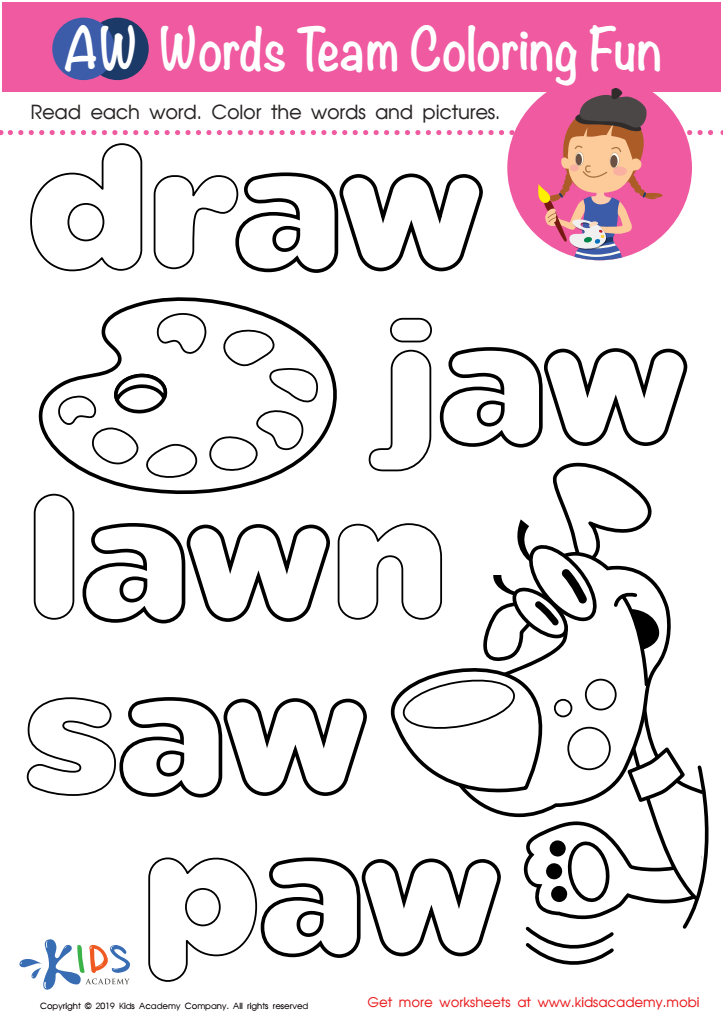

AW Words Team Coloring Fun Worksheet
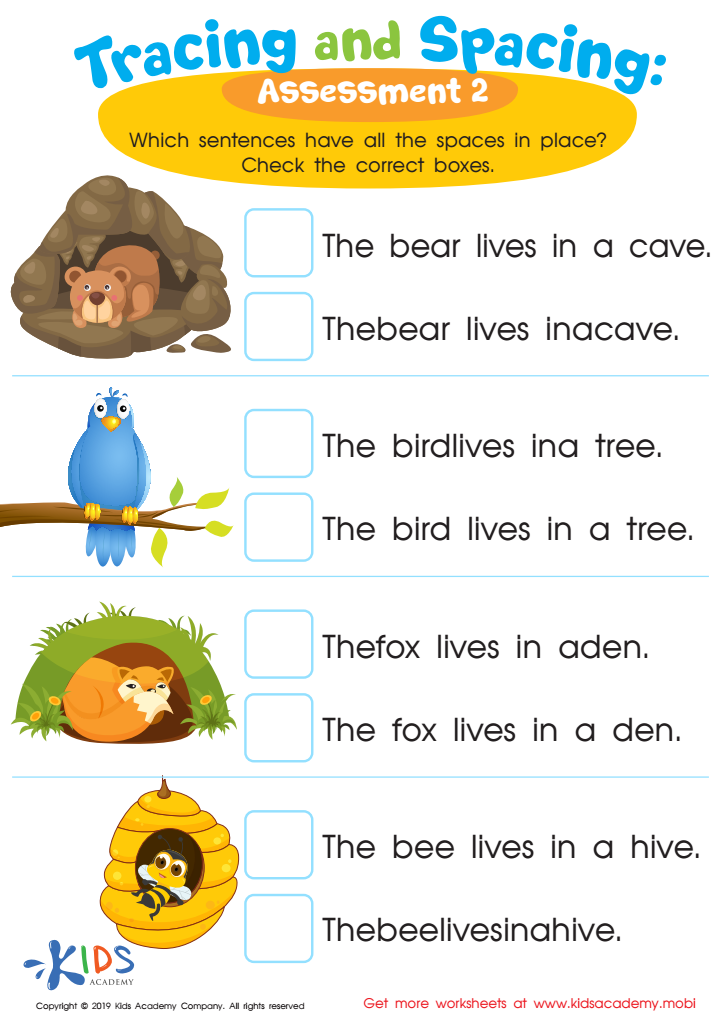

Tracing and Spacing: Assessment 2 Worksheet
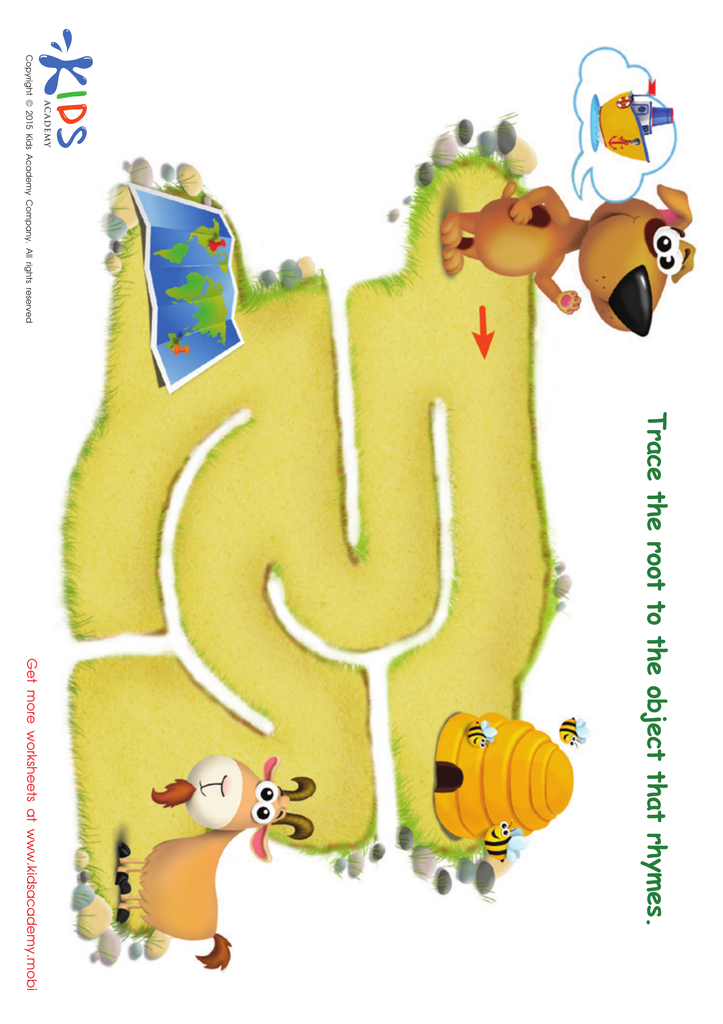

Boat Rhyming Words Worksheet


Long and Short U Worksheet
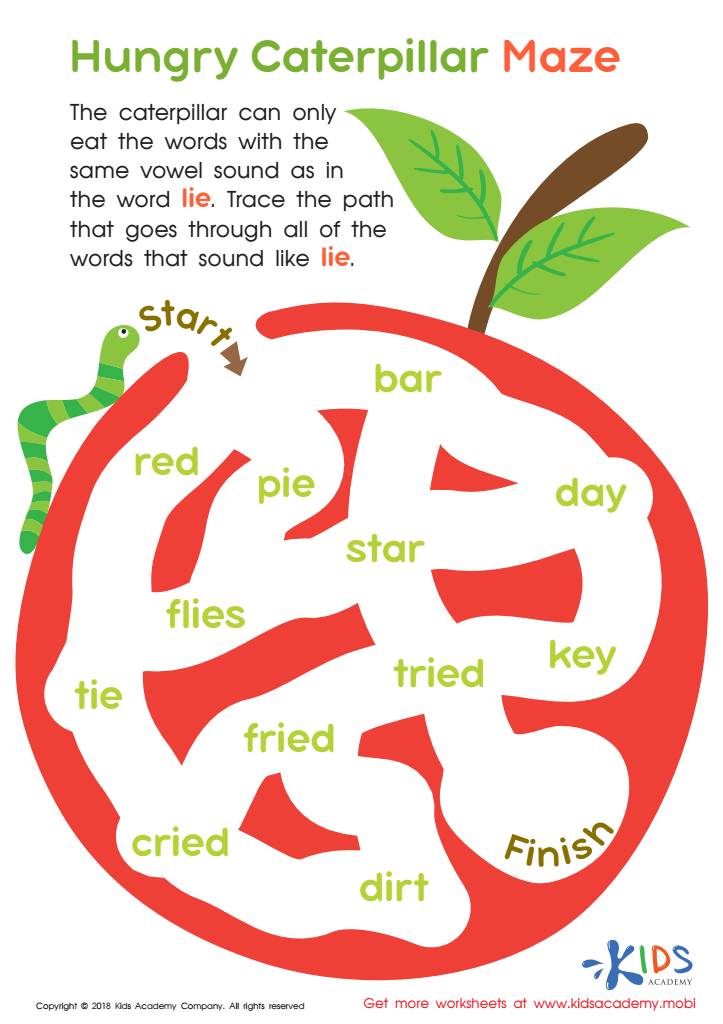

Hungry Caterpillar Maze Worksheet
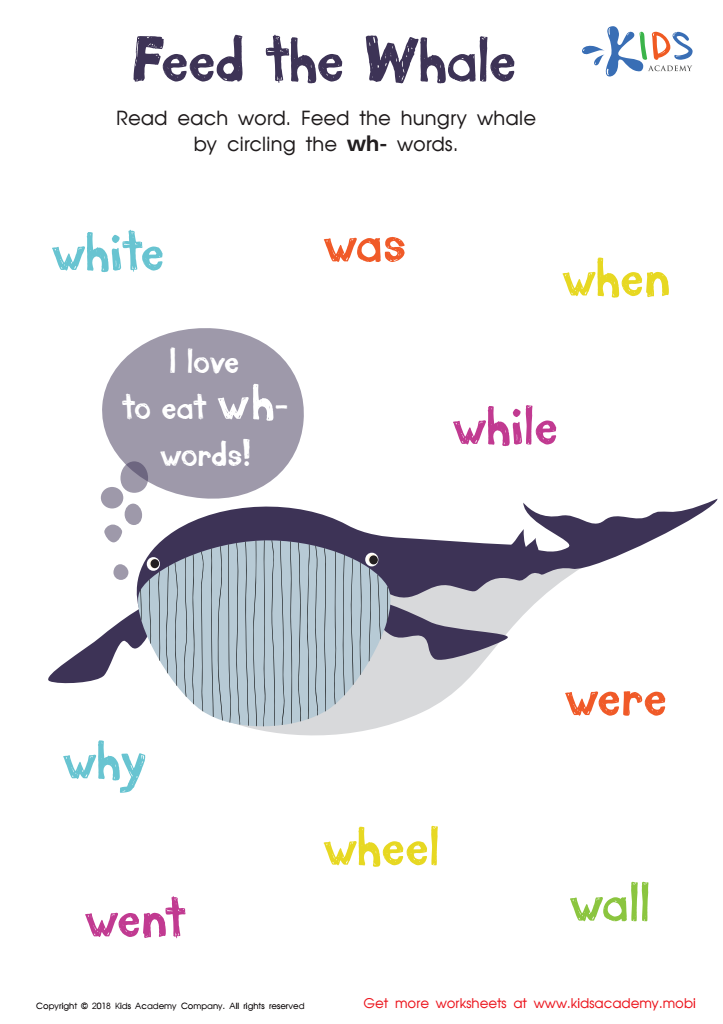

Feed the Whale Worksheet
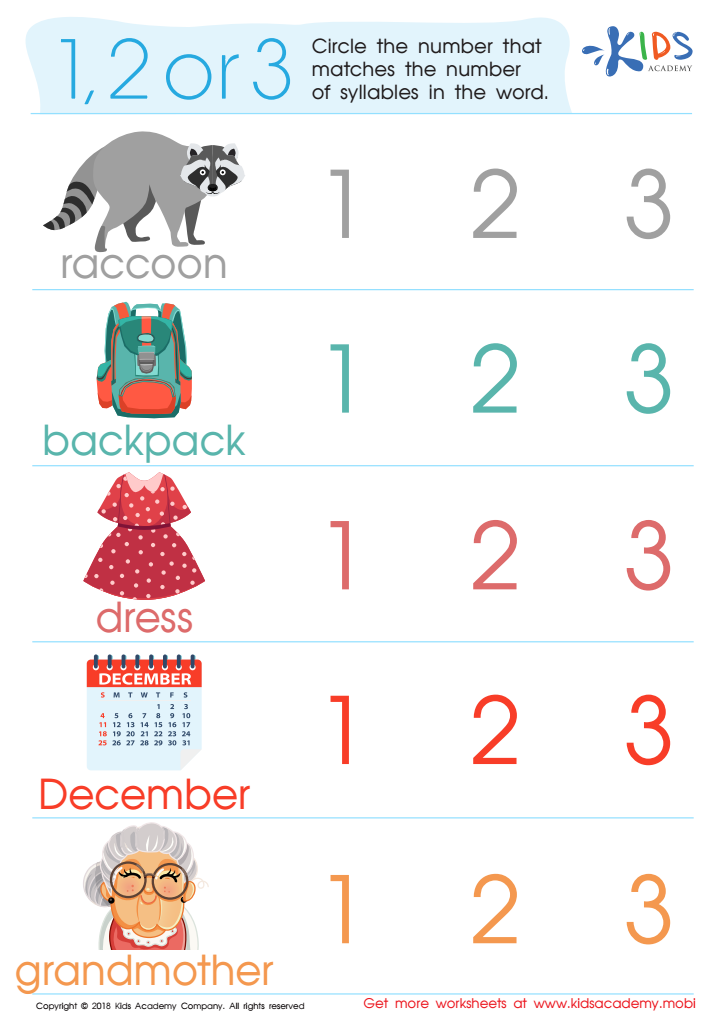

1, 2 or 3? Worksheet
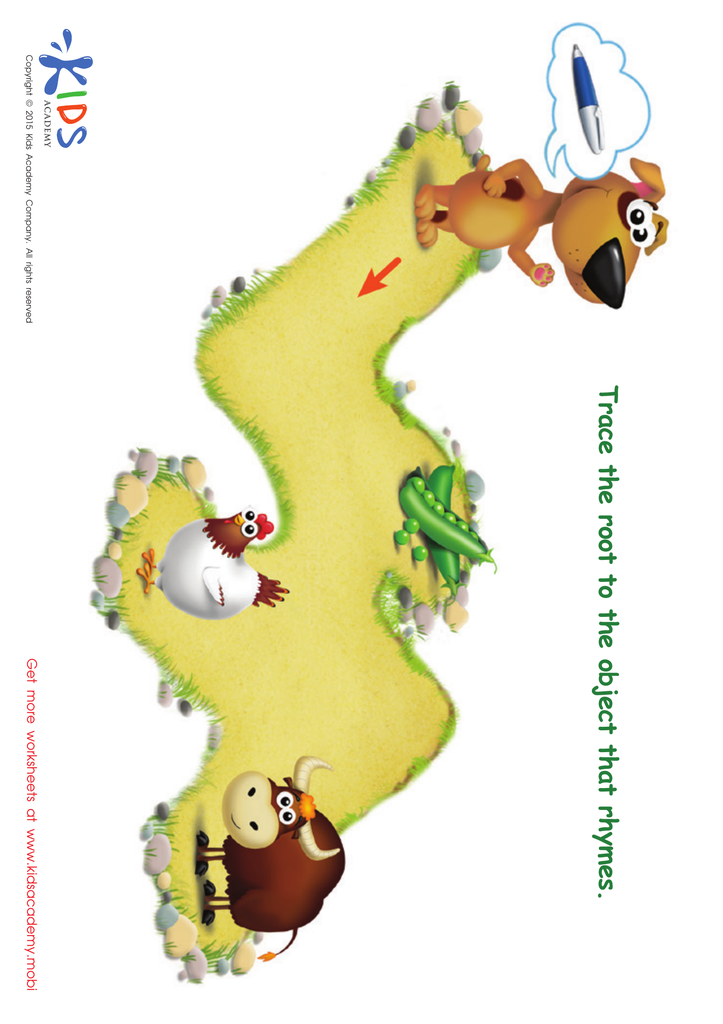

Pen Rhyming Words Worksheet
Fine motor skills and phonics are crucial components of early childhood development, and understanding their importance can significantly benefit parents and teachers working with children ages 3-8. Fine motor skills, which involve the precise movements of small muscles in the hands and fingers, are foundational for various tasks, such as writing, cutting, and manipulating small objects. Developing these skills aids children in becoming more independent, enhancing their confidence and ability to engage in classroom activities effectively.
Phonics, the relationship between letters and sounds, is vital for reading and literacy development. As children learn to recognize letters and their corresponding sounds, they become better equipped to decode words, which fosters a love for reading and improves communication skills.
Integrating fine motor skill development with phonics activities—for example, through letter tracing or building letter shapes with playdough—can create a fun, engaging environment that promotes learning. When parents and teachers prioritize these developmental areas, they equip children with essential skills for academic success, laying the groundwork for a lifetime of learning. Understanding and supporting fine motor skills alongside phonics encourages holistic growth and prepares young learners for future educational challenges.

 Assign to My Students
Assign to My Students





















